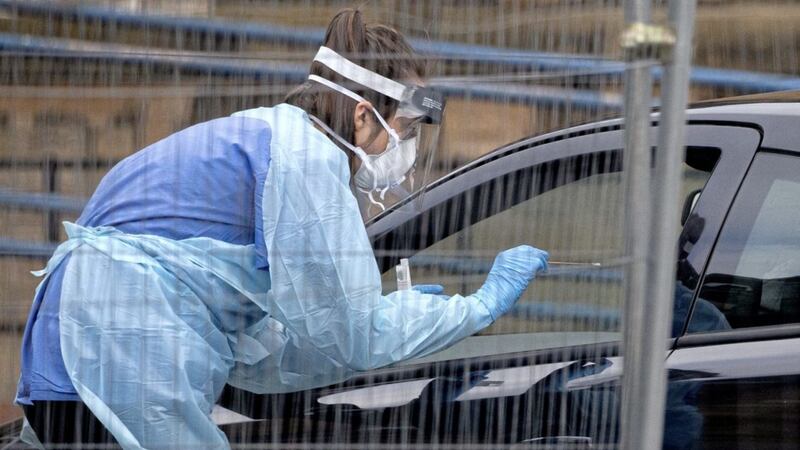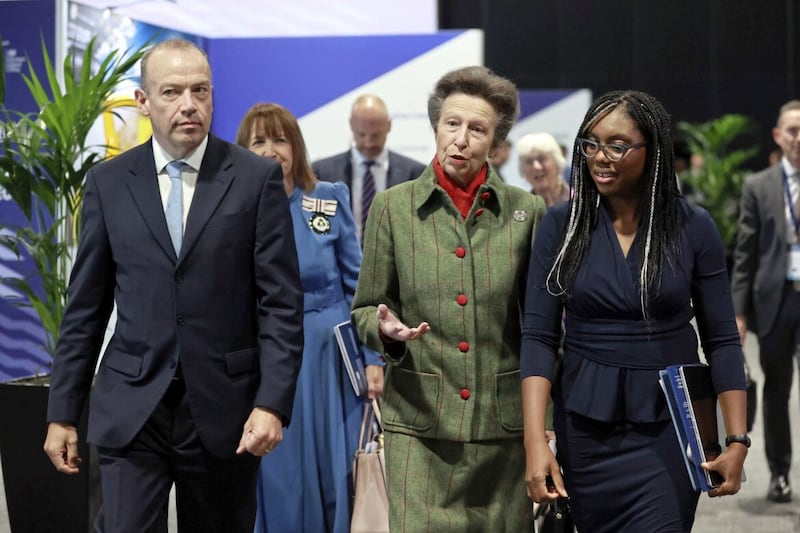COVID-19 has been an economic shock like nothing we’ve seen before, and hopefully will never see again. GDP across the UK fell by over 20 per cent during the strictest part of the lockdown, with some small signs of recovery only emerging as measures were eased.
But that’s not the case for all businesses. Some sectors, like aerospace, expect to be waiting up to two years for improvement. Given the number of local engineering jobs in that sector, Northern Ireland will undoubtedly feel the impact on jobs and living standards for some time.
Tourism, sports, retail have all taken a significant knock with many firms feeling the strain from weak demand, reduced cash flow and inability to make informed investment decisions. The toll on businesses both small and large has been enormous.
Against this background, government support has been very much needed. The UK government and Stormont Executive have shown amazing agility when it comes financial support. But we know that can’t continue indefinitely. Support will taper off and, at some point, stop. With government borrowing having hit £2 trillion, whether we like it or not, we are forced to think about the cost attached.
The Economist Magazine sets out the cost of government borrowing very clearly: “First, when debt rises faster than economic output, higher government debt implies more state interference in the economy and higher taxes in the future. Second, debt must be rolled over at regular intervals. This creates a recurring popularity test for individual governments, rather as reality TV show contestants face a public phone vote every week. Fail that vote, as various euro-zone governments have done, and the country (and its neighbours) can be plunged into crisis”.
National lockdowns in reaction to Covid-19 have obviously had more than an economic impact upon us. Young people have suffered huge disruption to their studies and, with exams cancelled, the awarding of final grades proved a significant challenge.
Our young people will undoubtedly feel the strain of reduced job opportunities and the likely burden of paying higher taxes in the future. Reduced medical procedures and diagnostics, delayed dental treatments, rises in domestic violence and a huge impact on mental health all count among the other social costs we must now seek to alleviate.
The international impact has also been telling, with developing countries once again paying too high a price in lives and livelihoods. In May this year UNICEF warned that “indiscriminate lockdowns” could contribute to 1.2 million child deaths, with the virus estimated to have pushed millions into extreme poverty. The United Nations World Food Program (WFP) has warned that by the end of 2020, more than 260 million people will face starvation – double last year’s figures.
Thankfully, at home, we’re now seeing significantly reduced pressures on hospitals. At time of writing, there are now only seven hospital beds taken up with Covid patients across Northern Ireland, with no patients in intensive care.
Despite some relaxation of lockdown measures since July 3, when restaurants reopened, hospital admissions have continued to decline. In the seven days up to August 19, Department of Health data shows that only eight patients locally were admitted to hospital with the virus, significantly down on the 274 admissions seen in the first week of April.
The Executive and the public have done a great job so far and we must all remain vigilant – washing hands, keeping distance, avoiding enclosed crowded spaces and keeping an eye on the indicators. We have been warned that positive cases will rise as lockdown measures are eased and indeed, with the 24,880 tests that we carried out in Northern Ireland in the seven days to August 18, we saw 294 confirmed positive cases come through– that’s around 1.1 per cent. Similar rises have been seen in Europe, but thankfully with fewer hospital admissions and deaths.
In terms of our economic recovery, widespread Covid-19 testing also has a clear role to play. Not only can it help with easing lockdown restrictions, but it can also be key to restoring public confidence. There have been great examples of where large-scale testing has really helped to keep industries moving – no more obviously than in football’s Premier League.
But we know the system isn’t infallible yet, with false negatives and false positives each posing different challenges. While things are heading in the right direction in terms of rolling out mass, high-quality testing, we must remain vigilant for everyone to benefit.
As we look ahead to autumn, there will be no room for complacency and difficult decisions and trade-offs – particularly around local flare-ups – will continue to be made.
But with Covid-19 likely to be with us for some time, we also need to plan for the days ahead. We need to look at key pressure points, not just in the NHS, but in care homes; in how we protect the elderly and vulnerable as we approach the colder months; and how we prevent another year of educational disruption for young people.
As some green shoots of recovery begin to emerge in the economy, we need to remember that Covid-19 still has some serious challenges in store for us.
Angela McGowan is CBI Northern Ireland director







